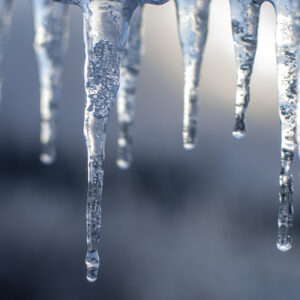
SRHD Encourages Safety Precautions During Extreme Cold Weather
Kelli Hawkins, SRHD | khawkins@srhd.org | 509.324.1539, c. (509) 994.8968
Spokane, Wash. – In light of the National Weather Service Spokane office’s announcement of dangerously cold temperatures in the forecast for eastern Washington starting Friday morning through the weekend, the Spokane Regional Health District (SRHD) is reminding people to take precautions to reduce health risks.
Exposure to cold temperatures can cause serious or life-threatening health problems. Infants and the elderly are particularly at risk, but anyone, including animals, can be affected.
"When the weather is extremely cold, and especially if there is additional wind chill, try to stay indoors," said Dr. Francisco Velázquez, Spokane County health officer for SRHD. “To avoid hypothermia and frostbite, make any trips outside as brief as possible, and remember that by preparing for winter emergencies, the risks of weather-related health problems can be reduced.”
Extreme cold presents a dangerous situation that can result in health emergencies in susceptible people, such as those without shelter or who are stranded, or who live in a home that is poorly insulated or without heat.
Preparing for extreme cold
- Stock up on emergency supplies for communication, food, safety, heating and vehicles
- Ready.gov winter weather checklists from ready.gov
- SRHD – Be prepared for emergencies
- SRHD – Extreme Cold Preparedness
- Listen to the radio or television, or follow social media channels, for winter storm forecasts and other information
- Know locations of warming shelters and services for those living without adequate housing or heating:
- Have appropriate cold weather clothing available
- Make sure fireplace functions properly
- Fill your vehicle’s gas tank
During periods of extreme cold
When residents must use space heaters and fireplaces to stay warm, the risk of household fires increases, as well as the risk of carbon monoxide poisoning. Use fireplaces, wood stoves, or other combustion heaters only if they are properly vented to the outside and never use a charcoal or gas grill indoors—the fumes are deadly.
Here are other tips to keep safe during extreme cold temperatures and potential power outages:
- If an individual must go outdoors, wear several layers of loose fitting, light weight, warm clothing rather than one layer of heavy clothing. Wear mittens rather than gloves. Wear a hat. Cover mouth with a scarf to protect lungs from extremely cold air.
- Watch for signs of frostbite and hypothermia:
- Signs of frostbite include a white or grayish-yellow skin area, skin that feels unusually firm or waxy, or numbness.
- Signs of hypothermia include slurred speech, disorientation, uncontrollable shivering, stumbling, drowsiness and body temperature of 95 degrees Fahrenheit or less.
- If a resident becomes trapped outside, get out of the wind and stay dry. Build a lean-to or snow cave if nothing else is available. Do not eat snow; it will make you too cold.
- Do not drive unnecessarily.
- Stay safe from carbon monoxide poisoning, according to the Washington Poison Center:
- Only use generators outside; keep generators at least 20 feet from your home
- Never use a gas oven to heat your home, even for short periods
- If you use your car to heat up or charge your devices, use it outside, never in an enclosed garage
- Never use charcoal grills inside for heating or cooking
Pets are at risk of serious health issues or death too.
- Keep pets inside
- If you let them out for any reason, wait and let them back in right away
- If you have concerns for the safety of an animal that should be indoors, please contact SCRAPS at: 509.477.2532
Spokane Regional Health District is a leader and partner in public health by protecting, improving and promoting the health and well-being of all people through evidence-based practices. SRHD is one of 34 local public health agencies serving Washington state’s 39 counties. Visit www.srhd.org for comprehensive, updated information about SRHD and its triumphs in making Spokane a safer and healthier community. Like SRHD on Facebook or follow us on Twitter to receive safety and wellness tips.
